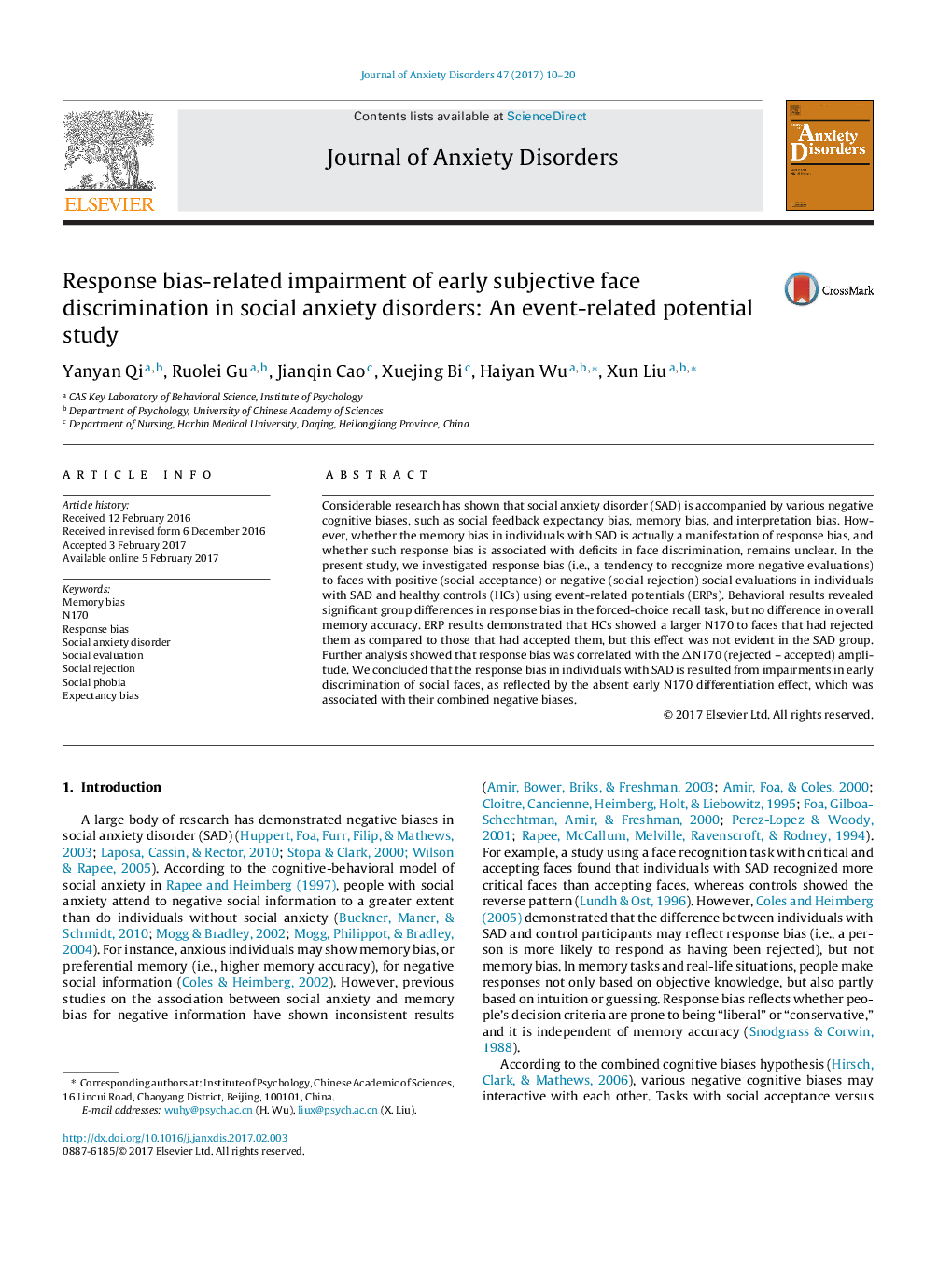| کد مقاله | کد نشریه | سال انتشار | مقاله انگلیسی | نسخه تمام متن |
|---|---|---|---|---|
| 5038867 | 1473031 | 2017 | 11 صفحه PDF | دانلود رایگان |
- Individuals with social anxiety disorders (SAD) showed less positive expectancy to the social evaluation.
- Individuals with SAD showed a response bias wherein they tended to judge faces as having rejected them.
- Response bias in individuals with SAD show impaired early discrimination of social faces, as reflected by the absent early N170 differentiation.
Considerable research has shown that social anxiety disorder (SAD) is accompanied by various negative cognitive biases, such as social feedback expectancy bias, memory bias, and interpretation bias. However, whether the memory bias in individuals with SAD is actually a manifestation of response bias, and whether such response bias is associated with deficits in face discrimination, remains unclear. In the present study, we investigated response bias (i.e., a tendency to recognize more negative evaluations) to faces with positive (social acceptance) or negative (social rejection) social evaluations in individuals with SAD and healthy controls (HCs) using event-related potentials (ERPs). Behavioral results revealed significant group differences in response bias in the forced-choice recall task, but no difference in overall memory accuracy. ERP results demonstrated that HCs showed a larger N170 to faces that had rejected them as compared to those that had accepted them, but this effect was not evident in the SAD group. Further analysis showed that response bias was correlated with the ÎN170 (rejected - accepted) amplitude. We concluded that the response bias in individuals with SAD is resulted from impairments in early discrimination of social faces, as reflected by the absent early N170 differentiation effect, which was associated with their combined negative biases.
Journal: Journal of Anxiety Disorders - Volume 47, April 2017, Pages 10-20
